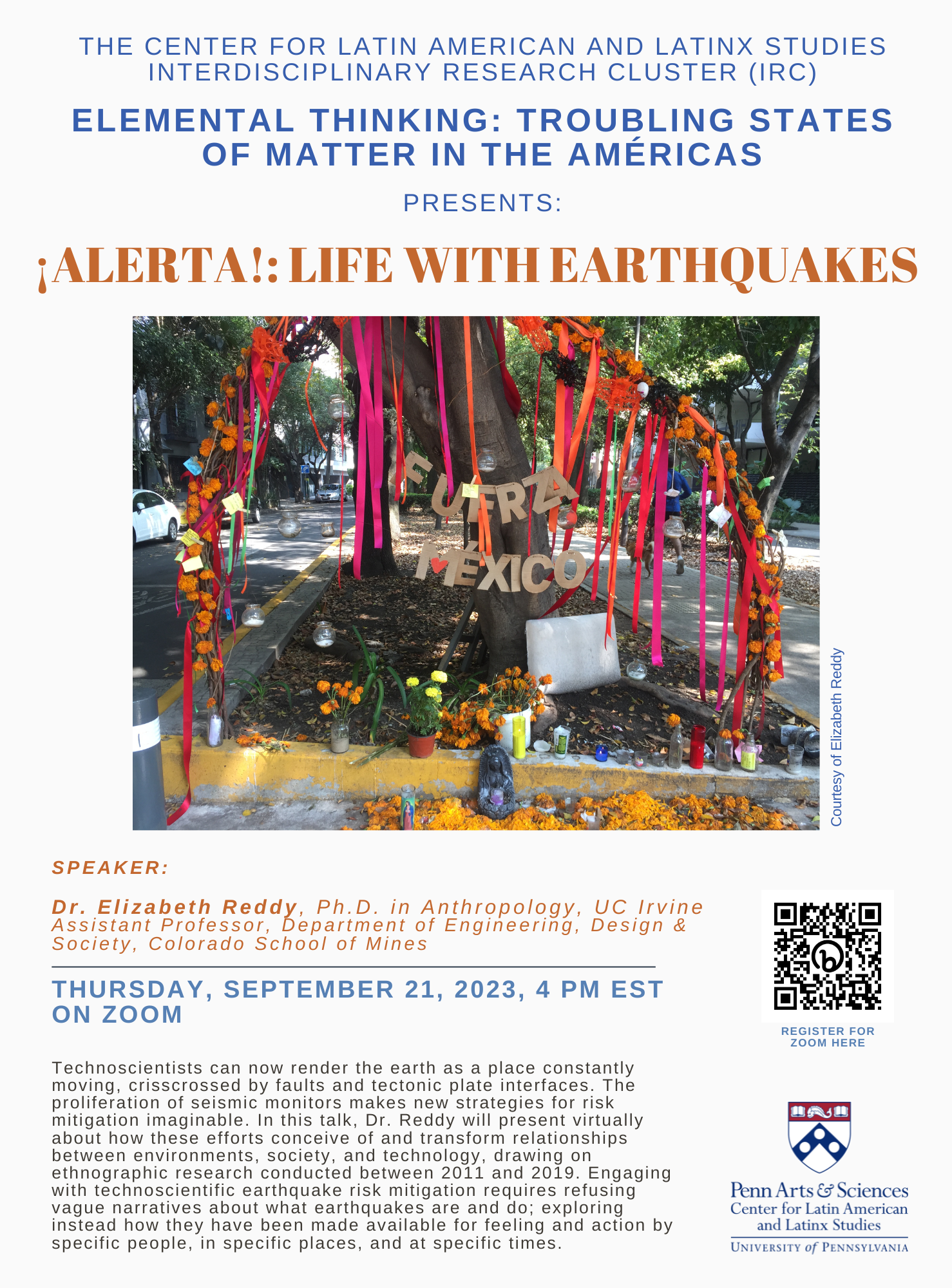Virtual - (Zoom)

Elizabeth Reddy (Assistant Professor, Department of Engineering, Design & Society, Colorado School of Mines) will virtually present "¡Alerta!: Life with Earthquakes" in this first installment of the lecture series sponsored by the CLALS Interdisciplinary Research Cluster (IRC) "Elemental Thinking: Troubling States of Matter in the Americas." This IRC is led by Penn professors Kristina Lyons (Anthropology) and Jon Hawkings (Environmental Sciences) in collaboration with other professors and graduate students across Penn’s schools and partners from Latin America and the U.S.
RSVP HERE to attend on Zoom.
Summary of talk
Technoscientists can now render the earth as a place constantly moving and crisscrossed by faults and tectonic plate interfaces. The proliferation of seismic monitors makes new strategies for risk mitigation imaginable. These, I argue, are efforts to conceive of and transform relationships between environments, society, and technology. In this talk, I draw on ethnographic research undertaken between 2011 and 2019. I frame the seismic and human conditions of possibility for a novel Mexican risk mitigation technology and for other technologies like it. Engaging seriously with ideas and practices that inform technoscientific earthquake risk mitigation requires refusing vague narratives about what earthquakes are and do; exploring instead how they have been made available for feeling and action by specific people, in specific places, and at specific times.
Presenter's Bio
Dr. Elizabeth Reddy holds a PhD in anthropology from the University of California at Irvine. Informed by the insights of environmental anthropology and science and technology studies, her research develops insights into how we understand and live with geology in motion and technologies designed to mitigate related risks. She is currently an Assistant Professor of Engineering, Design, & Society at Colorado School of Mines and holds a joint appointment in Geophysics.
Here is an overview of the IRC:
The elements have been taken up as a heuristic in the Arts and Sciences to understand environmental systems and change across geographical and cultural contexts. The approach to studying environments through the elements – most notably the classical elements of fire, earth, water, and air – has been foundational to the composition of Environmental Anthropology and its configurations of expertise, as well as the Environmental Sciences. However, the stakes of our current socio-ecological crises demand we engage with the elements as more than only taxonomies, statistics, and natural resources. This proposed interdisciplinary research cluster focuses specifically on socio-environmental conflicts and justice struggles involving these elemental assemblages. Our IRC cluster will engage with these pressing issues by placing the social studies of science & technology (STS), environmental law/justice, and the natural and environmental sciences in conversation through the combination of several activities: talks with invited guests and the organization of workshops and roundtables. We will focus on both case studies and broad trends occurring across the hemisphere in academic scholarship, scientific knowledge production, and public praxis. (Written by Kristina Lyons)

 Center for Latin American and Latinx Studies
Center for Latin American and Latinx Studies